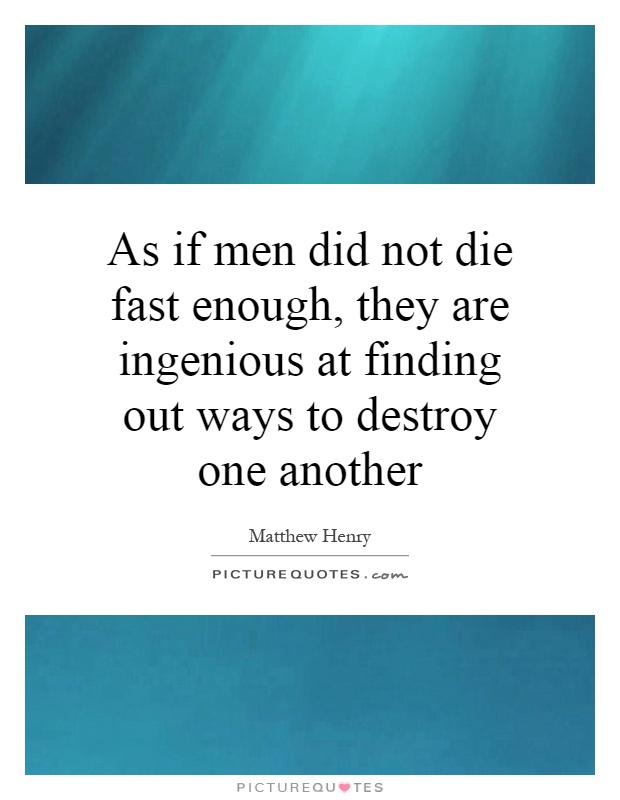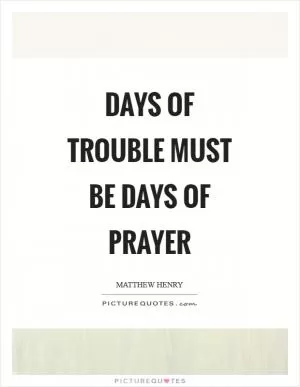As if men did not die fast enough, they are ingenious at finding out ways to destroy one another

As if men did not die fast enough, they are ingenious at finding out ways to destroy one another
Matthew Henry, a renowned theologian and commentator, made the profound statement, "As if men did not die fast enough, they are ingenious at finding out ways to destroy one another." This statement reflects the harsh reality of human nature and the propensity for violence and destruction that has plagued mankind throughout history.Throughout the ages, men have engaged in wars, conflicts, and acts of violence that have resulted in countless deaths and untold suffering. From ancient battles fought with swords and spears to modern warfare with advanced weapons of mass destruction, humanity has shown a disturbing ability to find new and more efficient ways to kill one another.
Matthew Henry's observation highlights the paradoxical nature of human beings. Despite our innate desire for survival and self-preservation, we are also capable of great cruelty and destruction towards our fellow human beings. This duality of human nature is a recurring theme in religious and philosophical teachings, as well as in the study of history and psychology.
The history of mankind is replete with examples of the destructive tendencies of humanity. From the atrocities committed during the Crusades and the Spanish Inquisition to the horrors of the Holocaust and the Rwandan genocide, the capacity for violence and destruction within human beings is a sobering reality.












 Friendship Quotes
Friendship Quotes Love Quotes
Love Quotes Life Quotes
Life Quotes Funny Quotes
Funny Quotes Motivational Quotes
Motivational Quotes Inspirational Quotes
Inspirational Quotes